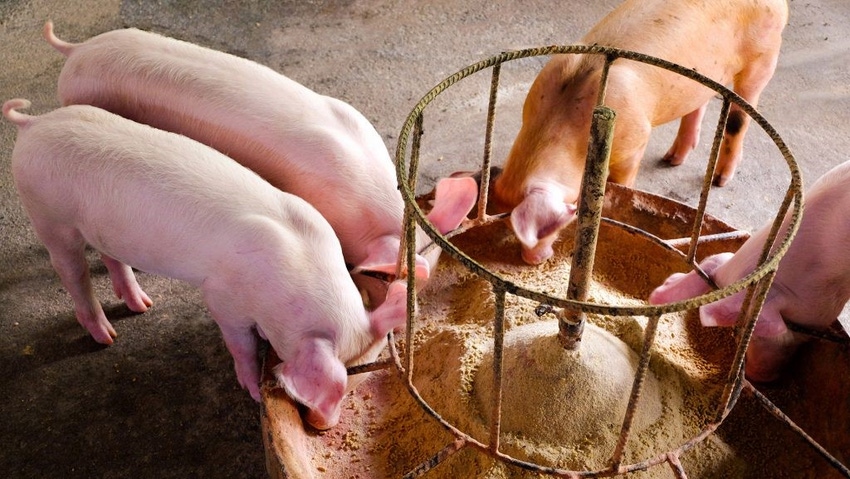Ongoing research by Pipestone Applied Research is testing 10 commercially available feed additives for their ability to mitigate viruses such as PRRS, PEDV and ASFV.
July 3, 2019

The Foundation for Food & Agriculture Research (FFAR) announced it has awarded a "Rapid Outcomes from Agricultural Research" (ROAR) grant to Pipestone Applied Research for research meant to halt the spread of swine viruses in animal feed by adding mitigants — additives that deactivate the viruses — directly to animal feed.
According to FFAR, the research can reduce the spread of porcine reproductive and respiratory syndrome (PRRS), porcine epidemic diarrhea virus (PEDV) and Seneca Valley A (SVA) — which may spread through contaminated animal feed — and may be relevant to preventing the introduction of other viruses such as African swine fever virus (ASFV) into a herd.
Swine producers have had difficulty protecting their herds from these viruses, FFAR said.
The research team is testing 10 commercially available disease mitigants, or feed additives, to assess whether these mitigants can deactivate PRRS, PEDV and SVA. The mitigants are added to feed containing the viruses and then are fed to pigs in a commercial setting to replicate on-farm conditions, although none of these animals enter the food supply.
“Pipestone Applied Research’s initiative to provide production-driven research to producers is already generating promising research for farmers and the pork industry,” said Dr. Scott Dee, research director at Pipestone Applied Research. “FFAR’s ROAR grant enables us to test additional mitigants in feed, which we are finding have a significant impact on reducing the spread of viruses. This breakthrough has the potential to improve animal welfare and ultimately lessen the financial sting of these devastating diseases.”
FFAR executive director Sally Rockey added, “This research is a significant breakthrough in stemming the spread of deadly viruses in contaminated feed. It could revolutionize the way we control animal viruses, protecting pigs from deadly illness and saving pork producers millions in annual financial losses. The added benefit of this research is that it might also be applicable to other viruses, such as African swine fever.”
Pipestone Applied Research and collaborators are planning a second phase of this research to identify mitigants that could potentially deactivate ASFV. The second phase of the project, which FFAR is also funding, will test the mitigants' ability to deactivate ASFV in a biocontainment facility at Kansas State University.
This research is funded through FFAR’s ROAR program, which rapidly funds research and outreach in response to emerging or unanticipated threats to the nation’s food supply or agricultural systems, FFAR said.
This ROAR grant is co-funded by ADM Animal Nutrition, Anitox, Kemin Industries, PMI Nutrition Additives and the Swine Health Information Center.
Source: Foundation for Food & Agricultural Research, which is solely responsible for the information provided and is wholly owned by the source. Informa Business Media and all its subsidiaries are not responsible for any of the content contained in this information asset.
You May Also Like



